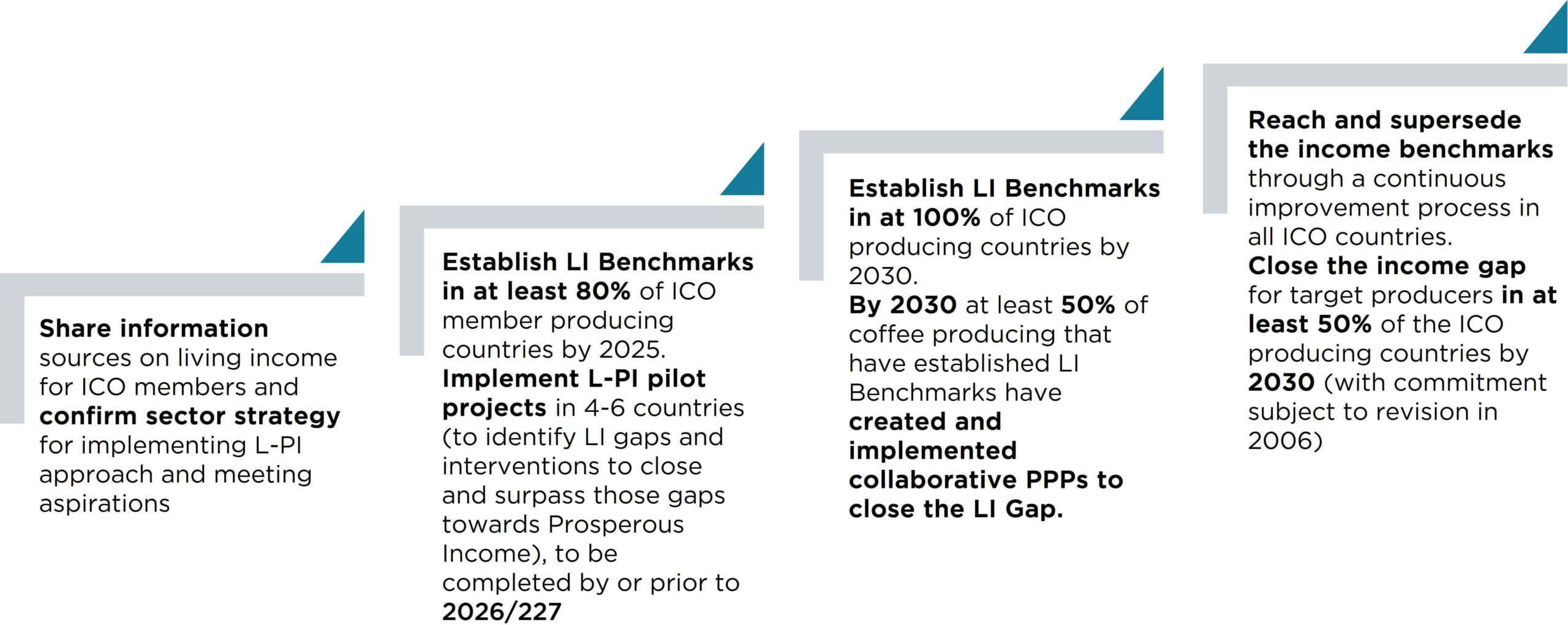

Living and Prosperous Income
The workstream on Living and Prosperous Income supports ICO members to deliver on the following time-bound commitments:
- Reach and supersede the income benchmarks through a continuous improvement process in all ICO producing countries.
- Close the income gap for target producers in at least 50% of the ICO producing countries by 2030 (with commitment subject to revision in 2026).
These commitments were designed to provide tangible steps for ICO members and key stakeholders in the coffee sector to work together towards achievement of economic resilience and social sustainability, and ultimately helping to realize the Taskforce vision of a sustainable and prosperous future for all coffee producers.
Time bound commitments

The objective of the workstream is to generate comparable methodology and credible, public data on the costs of a decent standard of living (benchmark) and the gap between that and farmers actual incomes. This will inform policy and collaborative action to close identified income gaps and deliver on the commitments.
The Sustainable Food Lab and Agrofuturo Global are facilitating the work with smallholder coffee farmers in collaboration with the National Agriculture Export Board (NAEB) in Rwanda, the Secretary of Agriculture and Rural Development (SADER) in Mexico, National Coffee Institute of Honduras (IHCAFE), UNDP and the Ministry of Agriculture and Irrigation (MIDAGRI) in Peru, Ministry of Trade and Ministry of Agriculture in Indonesia, National Institute of Angolan Coffee (INCA), Ethiopian Coffee and Tea Authority (ECTA), Coordinating Committee for the Coffee and Cocoa Sectors (CCFCC) in Togo, and Vietnam Coffee Cocoa Association (VICOFA). Eight of the Taskforce private sector members are financing the Benchmark Accelerator.
In order to scale the work and ensure full participation of member producing countries, the workstream collaborates strategically with three regional platforms: The InterAfrican Coffee Organization (IACO), Promecafé (in Mesoamerica), and the ASEAN Coffee Federation. The aim is to create regional knowledge hubs that can effectively replicate and harvest the valuable insights and learnings obtained from the pilot countries, in order to scale the initiative to all member countries.